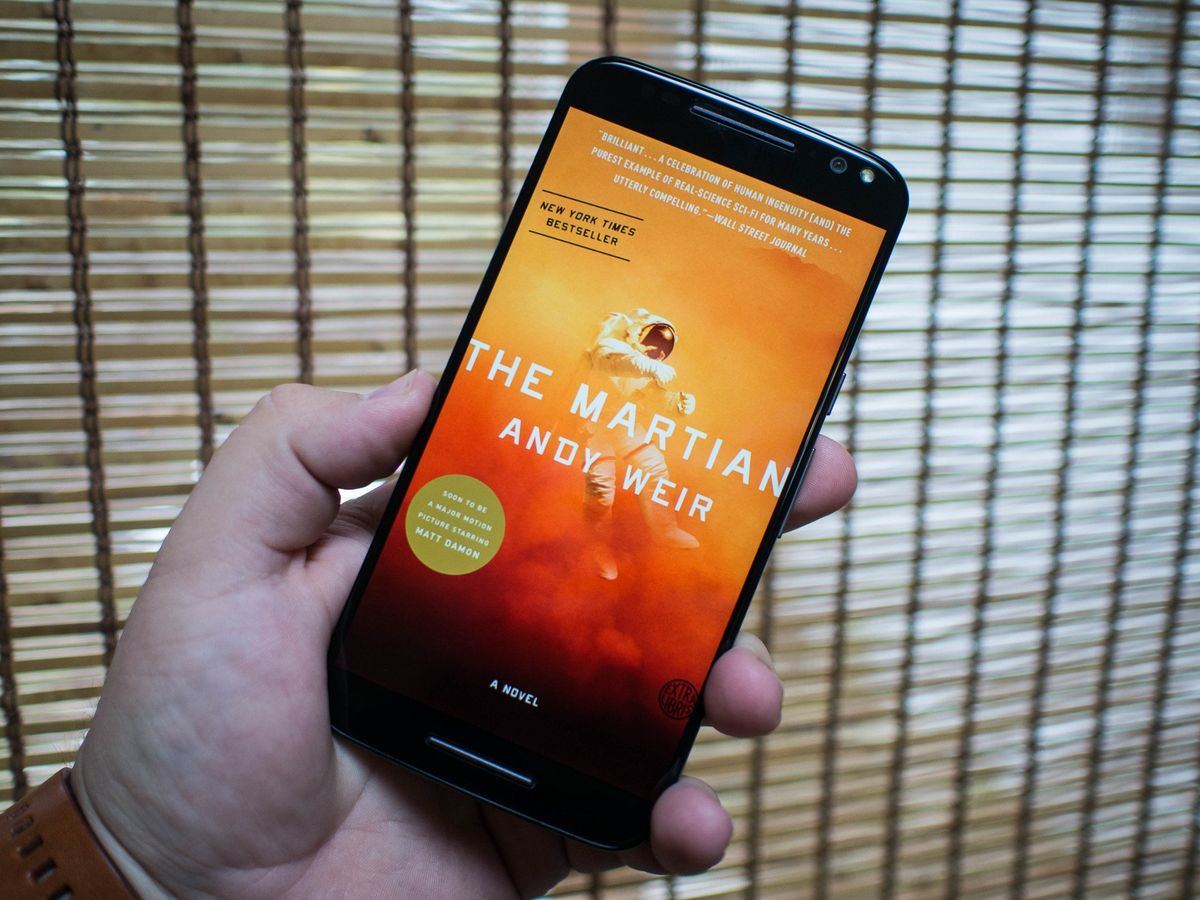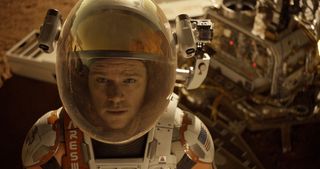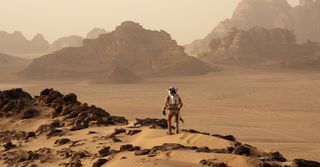Interview — Andy Weir, author of The Martian
Books become movies all the time, but The Martian is something special.

If you're a fan of science fiction movies, specifically the space variety, there's a good chance you've been paying attention to the trailers for The Martian. It has all the makings of an amazing movie, and that has a lot to do with it first being an amazing book. If you've never read The Martian, you should quickly add it to your list, but for those who have and are looking forward to seeing this story on the big screen we've got something a little different from our normal coverage today.
We sat down recently with Andy Weir, author of The Martian, to talk a little about his experiences as this story became a movie. Beware before you read any further, there are some movie spoilers in the interview. Enjoy!

Russell: This story started out basically as a series of blog posts, eventually making its way to a published book and then a movie. Has this journey changed your thoughts on self-publishing at all?
Andy: I never expected any of this stuff to happen, right? I thought I was just writing this for the small group of nerds on my mailing list, so this has all been a complete surprise to me. A really pleasant surprise, like winning the lottery kind of surprise, but shifting how I thought about publishing? I think self-publishing was the key to my success there, I would never have thought to send this off to publishers.
Russell: If you were to write something else, would you also self publish it?
Andy: Oh no, now that I have an "in" I'm gonna shamelessly stick around.
Russell: A lot of The Martian is excitingly technical, can you talk about the research you did for this book?
Get the Windows Central Newsletter
All the latest news, reviews, and guides for Windows and Xbox diehards.
I calculated out the orbital trajectories that Hermes takes, and it was accurate.
Andy: Mostly it was me looking things up on Google. I didn't know anyone in aerospace, I was on my own, so I did a bunch of Google searches. I know a lot of people in the field now, but I didn't at at the time so I would research things as I needed to. I really liked that. The research was fun, it was entertaining and fun to do that. The hard part was sitting my ass down and actually writing.
Russell: Was there one piece of the research in particular you found the most interesting?
Andy: Probably the orbital trajectories. I calculated out the orbital trajectories that Hermes takes, and it was accurate. It felt good to know that they were correct, even if the readers would never really know that. I had a lot of fun doing that, I went way down the rabbit hole on that one. It was just way more work than was necessary.
Russell: Have you had any of your new NASA and JPL contacts point out anything in the book that was inaccurate?
Andy: Everybody points out, and I knew this when I wrote it, that a sandstorm on Mars doesn't have that kind of force. A Martian sandstorm can't do that kind of damage. I know that at the time I wrote it, I just made that concession to drama because it was a Man vs Nature story and I wanted Nature to have the first punch. On a more positive note, folks at JPL were really happy to see the firm division between NASA and JPL in the story. Most people don't even realize there's a difference between those two entities.
Russell: Talking about how this turned into a movie, you've mentioned being happy with the changes that were made in order to make this work on the screen. Can you talk about what you feel was the most significant of these changes?
Andy: The whole trip from Ares 3 to Ares 4 is kind of montaged. It's fairly quick, so all of the problems he faces in that trip are gone. He doesn't run into the dust storm that threatens to run him out of power, he doesn't flip the rover, those are just not in the film, and I think it was a good idea to pull them out. The movie is already pretty long, it's over 2 hours. You have to remove things or you'll have a movie that just drags.

Russell: Is there any one scene you find absolutely looks as you pictured it when writing the story?
Andy: Yeah! I was really happy with it. This may seem like a boring answer, but it's the views. The panoramic vistas of Mars from the surface. It's just these beautiful red mountains and hills and rocks, stuff like that. I really got a kick out of that because you can't really convey that in writing very well. You can't really describe landscapes and excite the reader at all. Seeing a landscape or seeing a natural scene is entirely a visual experience. If you describe it briefly there's no emotion to it, and if you explain every scene in depth the read is going to toss the book over their shoulder because it's boring. I had to hope the readers were visualizing Mars, but in a visual medium it's beautiful. Ridley Scott likes to do that, he likes to show you the panoramas and let them breathe for a bit. It was pretty cool.
Russell: Finally, what was your favorite of the jokes involving Watney?
Andy: There's a great visual gag in the movie where he gets blown up by the hydrazine, and shows him sitting down in front of the camera. He goes "yeah, uh, I blew myself up" and there's literally smoke coming off of him and it's really funny.
Russell is a tech nerd who chases the best of everything, from phones to game consoles to laptops and everything glowing or beeping. He's the Managing Editor of gaming content for Mobile Nations and can be found contributing to all of the Mobile Nations sites. Reach out on Twitter!
